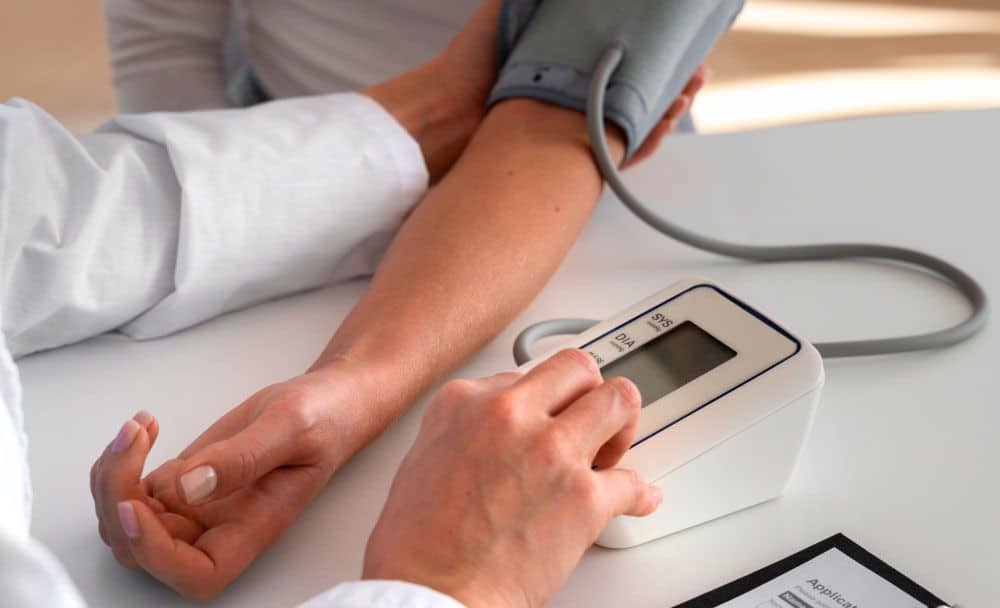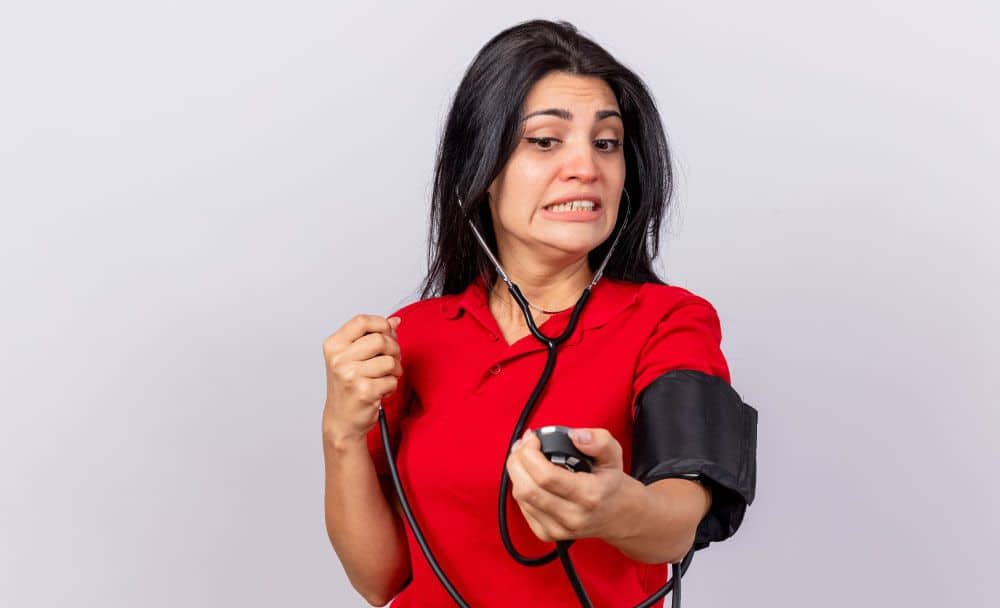High blood pressure, also differently called hypertension, is one of the commonest medical conditions affecting a significant portion of the global population. While it is not a disease in itself, it is one of the primary reasons behind mortality and morbidity today. When the blood flowing in the arteries exerts tremendous pressure on the arterial walls, the condition is referred to as high blood pressure.
High BP puts excessive strain on the cardiovascular system. If left untreated, hypertension can bring about severe health-related complications like strokes, heart attacks, and eye, liver, and kidney problems which can lead to a person’s death. This is why high blood pressure is considered extremely dangerous, where the patient often does not realize that he or she is suffering from the condition until it is too late and thus is also referred to as a ‘silent killer.’ [1] Therefore, it is crucial to understand the symptoms, causes, and available treatments for this condition. This article will inform you about the various high blood pressure symptoms, the reasons for high blood pressure, how to reduce high blood pressure and much more.
What is hypertension?
Hypertension or high blood pressure is a major cardiovascular risk factor, and its treatment lies in lowering the risk of cardiovascular events. While hypertension is mostly a silent disease, to answer the question of what is the main cause of high blood pressure- it is often associated with headaches or other neurological disorders, such as migraine and other stress-related headaches.[2]
What are the symptoms of high blood pressure?
Recognizing the high blood pressure symptoms can be challenging since it often does not manifest noticeable signs in its early stages. However, some individuals may experience high blood pressure symptoms such as giddiness, dizziness, and instability. Some patients also exhibit high blood pressure symptoms such as palpitations, continuous headaches, especially in the early mornings that then disappear after one or two hours, insomnia where the patient is unable to sleep well at night, bulging of the eyes, swollen face, and regular problems of constipation and bad digestive system.[1]
How can high blood pressure be diagnosed?
In most cases, hypertension is diagnosed through regular blood pressure measurements taken during routine medical check-ups, and when a patient has persistent high blood pressure, they are said to display high blood pressure symptoms.
In the majority of cases, diagnosing high blood pressure requires three separate sphygmomanometer readings, which have been taken at least one week apart. In case, during the test, the patient shows signs of an extreme elevation in the blood pressure, or if there are other symptoms of organ damage present, then the diagnosis may be made. Moreover, as soon as the diagnosis is made, a high blood pressure treatment should be commenced, as any delay in the treatment can lead to the patient’s death.
Laboratory tests are also sometimes performed to identify what causes high blood pressure and to determine if hypertension has caused other related damages such as to the heart, eyes, and kidneys. Additional tests for diabetes and high cholesterol levels are usually performed because they are also an additional risk.[1]
What are the causes of high blood pressure?
Once the diagnosis of hypertension has been made, physicians try to immediately make an attempt to identify what causes high blood pressure based on risk factors and other high blood pressure symptoms, if present. Several factors contribute to the development of high blood pressure.
To understand what causes high blood pressure, you need to understand the two main types of hypertension.
Primary hypertension, the most common form, tends to develop gradually over time and is often influenced by lifestyle choices such as diet, physical activity levels, smoking, and alcohol consumption. Secondary hypertension, on the other hand, is caused by an underlying medical condition, such as kidney disease, hormonal disorders, or medication side effects.
There are basically several reasons for high blood pressure, such as:
- Mental anxiety
- Tensions
- Stress
- Worries
- Strong emotions such as anger, shock, hatred, and jealousy
In the last instance, it is believed that steroids like mineralocorticoids and glucocorticoids are reasons for high blood pressure. It may also be due to malfunctioning of the vital organs. There may be other reasons for high blood pressure as well, which are also considered strong predictors of the disease.
One such factor that is a cause of high blood pressure is aging which leads to the hardening of arteries and, in turn, an increased systolic.
Diet and heredity are yet other factors if you want to dig deeper into what causes high blood pressure. Salty food items or foods that are very rich and fried can lead to high blood pressure. Hereditary factors are also responsible for it, as the condition may get passed from parents to children.
A condition known as renal artery stenosis is also one of the reasons for high blood pressure. In this condition, the renal arteries that supply blood to the kidneys become narrowed because of the presence of plaque on the inner walls of the arteries.
An otherwise healthy female can also show signs of high blood pressure after her 20th week of pregnancy. This is called pregnancy-induced hypertension and manifests high blood pressure symptoms in women, especially if they are obese. Some of the high blood pressure symptoms in women are water retention and protein in the urine or even dizziness, visual disturbance, headache, nausea, poor appetite, facial edema, abdominal pain, poor appetite, and vomiting.[1]
What is the treatment for high blood pressure?
To answer the question of how to reduce how blood pressure, it typically involves a multifaceted approach aimed at lowering blood pressure levels and minimizing the risk of complications. Lifestyle modifications play a crucial role in high blood pressure treatment and may include adopting a balanced diet low in sodium, engaging in regular physical activity, maintaining a healthy weight, limiting alcohol intake, and quitting smoking. Medications may sometimes be prescribed to help control blood pressure levels effectively.
Here are some of the ways that suggest how to control high blood pressure:
- If overweight or obese, lose some weight as this is one of the most prominent high blood pressure remedies.
- Quit smoking
- Eat the right food for high blood pressure, which includes more fruits, vegetables, low-fat dairy products, less saturated and total fat.
- Cut down the amount of sodium in the diet to less than 1,500 mg a day.
- Limit the intake of alcohol.
- Get regular aerobic exercise such as brisk walking for at least 30 minutes a day, several times a week [1]
FAQs
- What are some food for high blood pressure?
Some of the most essential plant-based food for high blood pressure include olive, jaundice berry, alfalfa, bloodwort, ginseng, juniper, mistletoe, hawthorn, garlic, parsley, strawberries, black cumin, rauwolfia, and sour milk, among others. Apart from this, the other food for high blood pressure includes adequate amounts of green vegetable salads, sprouts, and fresh fruit juices.
- What causes high blood pressure in young adults?
To answer the question of what causes high blood pressure in young adults, one has to look into the changes in the younger generation’s lifestyle. This includes unhealthy lifestyle choices, such as not getting enough regular physical activity. In addition, certain health conditions, such as diabetes and obesity, can also increase the risk of developing high blood pressure.
- What are some of the foods to avoid with high blood pressure?
Some foods to avoid with high blood pressure are salty foods, sugary goods, red meat, sugary drinks, alcohol, saturated fats, condiments, and processed and prepackaged foods, to name a few.
Conclusion
It is important to manage hypertension and keep high blood pressure in check by maintaining a healthy lifestyle to prevent further health complications. Regular monitoring, adherence to high blood pressure treatment plans, knowing the high
blood pressure symptoms, what causes high blood pressure, how to reduce high blood pressure, and working closely with healthcare professionals are essential steps in managing this condition effectively. By understanding these and how to control high blood pressure, the best home remedies for high blood pressure, and how to control high blood pressure, individuals can take proactive measures to maintain their cardiovascular health and overall well-being.
Disclaimer:
This article is written from a health and wellness perspective only and is not a piece of medical advice. Kindly seek the help of a certified medical practitioner before initiating any treatment.



















